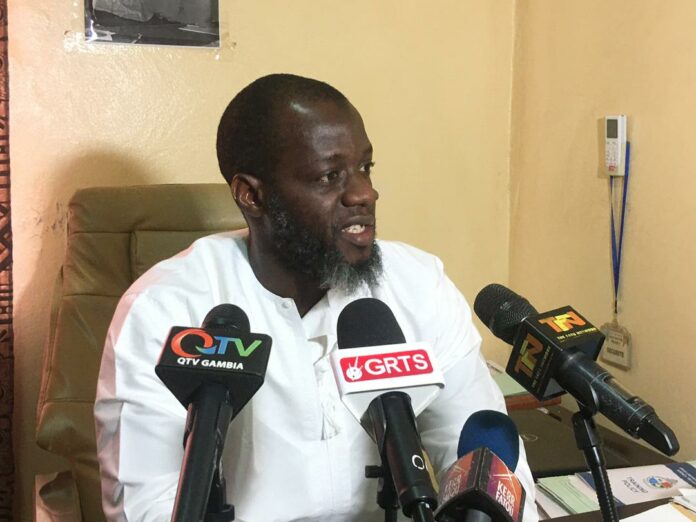By: Dawda Baldeh
The Drug Law Enforcement Agency of The Gambia (DLEAG) Public Relations Officer, Ousman Saidybah, has stated that they have made significant progress in combating the use, trafficking, and distribution of illicit drugs in The Gambia.
Mr. Saidybah was speaking to The Fatu Network on Sunday August 27 on the agency’s achievements, challenges, and way forward in their drive to make the country a drug-free destination. He confirmed making significant progress on both supply suppression and demand reduction of illicit drugs.
“We have disrupted illicit trafficking of controlled drugs through the postal services. One of our single biggest seizures was more than eleven thousand pills through the post office,” he explained.
He disclosed that they’ve effected other seizures of more than two hundred pills and also napped several individuals involved in such dealings.
Saidybah cited the post office as one of the means drug traffickers used to bring illicit drugs into the country.
He went on to say they have destroyed farms around border areas that were involved in the cultivation of cannabis and supplying the local markets.
Saidybah further spoke on their advocacy programs such as the establishment of drug-free clubs in different schools, community outreach, and radio programs to sensitize people on the negative impact of drugs.
Outlining their concerns and challenges, DLEAG said that combating drug trafficking, use, and distribution is a global challenge that needs concerted efforts.
To ensure the agency succeeds in the process of combating illicit drugs, Saidybah cited information sharing as key for them to perform their duties effectively.
“We need information to perform our duties effectively and take necessary actions. People need to share information but sometimes information is not forthcoming. Those in isolated areas also need to be very vigilant about the happenings within their surroundings and share such information with the agency,” emphasized.
Despite global efforts to combat the illicit trafficking of drugs which remains the most lucrative form of illicit trade, the agency spokesperson said much community support is needed, from logistical support, mobility, and financing, as the government cannot do it alone.
“We can make significant progress if we work together. Drugs are being abused in our settlements by our children. It is not only about enforcement and arresting but communities can come together and take affirmative actions against drugs too,” he added.
Speaking on the way forward for the safety of the agency and its members, Saidybah revealed that plans are underway to revise the Drug Control Act to put in provisions that will protect its officers.
“Fighting drugs is the most persistent phenomenon and is a dangerous trade because you go after people who under the influence of drugs can do anything,” he lamented.
He emphasized that the agency officials are always advised to use minimal force when effecting arrest which must be within the frame of the law so that they cannot abuse the law in the process of enforcing it.




